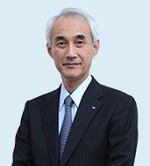 |
|
| Mitsubishi Tanabe President Masayuki Mitsuka |
Final clinical trials on a flu vaccine developed by Mitsubishi Tanabe Pharma are scheduled by the end of the year in the United States, and the company says the new treatment is unique because the company uses tobacco leaves to produce the vaccine with a month, which it says is one-sixth the time it normally takes.
The company says the process will be commercialized by 2018 or 2019 and it is in the final stages of verifying its safety and effectiveness in the U.S. and Canada.
The company "will first do business in the U.S., and we will also consider Asian countries if we meet profitability goals," the report quoted Mitsubishi's president, Masayuki Mitsuka, as saying.
Flu vaccines using normal development processes with chicken eggs take up to 6 months to develop and other processes take at least three months. The method used by Mitsubishi was developed by Canada's Medicago, which Mitsubishi bought in 2013, according to a report by Nikkei news.
The process "implants genetic material into the leaves that produces flu-like antigens," the report said, and because the particles are not live viruses, "chances of infection are minimal," the report added.
The company said trials are also underway for bird flu vaccines and H7 flu vaccines and it is also developing vaccines for rotavirus and for rabies.
The report said because the process uses genetic manipulation, commercialization will be delayed because Japanese standards will have to be revised, which is also the reason the company is aiming for U.S. sales before other markets.
Mitsubishi said the company plans for about $702 million in sales in the U.S. by 2020.
- here's the report by Nikkei news